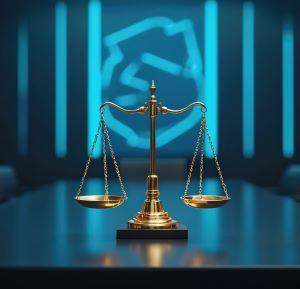Do they need to have a separate legal entity? An account of how companies function

Companies possess fundamental features that make them a lucrative tool for conducting business. Chief among these is their status as separate legal entities/personalities. This principle allows those who invest in companies by purchasing shares to enjoy limited liability. As a result, shareholders generally do not risk their personal wealth when investing in these shares (which are considered assets of the company). Instead, their liability is limited to the extent of their shareholding.
The concept of a separate legal entity is a sacrosanct feature of the corporate structure, firmly established in Salomon v Salomon & Co Ltd [1897] AC 22. This principle has been reiterated on numerous occasions by common law courts.
However, scholars such as Ireland (2010) argue that the corporate legal form, as currently constituted, is not an economic necessity but a political construct designed to further the interests of specific groups. Ireland critiques this construct, suggesting that it has been ruthlessly manipulated to institutionalise irresponsibility. Corporate irresponsibility can be observed when the concept of separate legal personality is exploited to evade legal obligations or pursue opportunistic behaviour.
Campbell and Griffin (2006) highlight abuses of corporate power, including alleged violations of human rights, environmental degradation, labour exploitation, and financial scandals like Enron. These abuses raise questions of accountability: should corporations be held more accountable? Some argue for abolishing limited liability in general (Campbell and Griffin, 2006), while others propose alternative solutions, such as lifting the corporate veil whenever necessary (Pickering, 1968).
Dispensing entirely with the concept of separate legal entity is unlikely, as there is no general consensus on this issue. Moreover, denying shareholders the privilege of limited liability is not viewed as a viable solution (Ireland, 2010). Instead, the doctrine of "lifting the corporate veil" has been extensively discussed and applied by courts to address instances of corporate misconduct.
For example, in Gilford Motor Co Ltd v Horne [1933] Ch 935, the court disregarded the corporate entity when Mr. Horne set up a company to circumvent his contractual obligations under a non-compete clause in his employment contract. Common law courts have devised piecemeal solutions on deciding when to lift the corporate veil, such as:
- Establishing an agency relationship between parent and subsidiary companies, as seen in Smith, Stone and Knight Ltd v Birmingham Corporation [1939] 4 All ER 116 (QB).
- Treating a parent company and its subsidiary as a "single economic unit," as in DHN Food Distributors Ltd v Tower Hamlets London Borough Council [1976] 1 WLR 852 (CA).
- Recognising a company as a "façade or sham," as in Jones v Lipman [1962] 1 WLR 832.
Since Salomon v Salomon, courts have frequently invoked the doctrine of lifting the corporate veil to hold individuals accountable. Ironically, they continue to stress the sacrosanct feature of a company highlighted by Lord Halsbury in Salomon.
However, the Petrodel Resources Ltd v Prest [2013] UKSC 34 case was a turning point. The UK Supreme Court stepped in to rein in the overuse of the doctrine. Lord Sumption introduced two principles:
- The Evasion Principle: Where a company is used to frustrate legal rights or obligations.
- The Concealment Principle: Where the company’s separate personality is used to hide the true nature of transactions or relationships.
While Petrodel emphasised the need to use the doctrine sparingly, it did not resolve the broader societal and political debates about when a company's separate legal entity should be disregarded. The judgment received academic critique (Liew, 2014) and has also been scrutinised in subsequent cases, such as Akzo Nobel N.V v Competition Commission [2013] CAT 13, Antonio Gramsci Shipping Corp v Recoletos Ltd [2013] EWCA Civ 730, and Hurstwood Properties (A) Ltd v Rossendale Borough Council [2021] UKSC 16.
Still, Petrodel was an important reminder of the balance that needs to be struck. Courts can’t simply dismiss the separate legal entity concept established in Salomon whenever it seems convenient. The veil should only be lifted in situations where it’s absolutely necessary.
The question remains: have these historical developments led to an effective framework for minimising corporate irresponsibility? Some might argue that corporate misconduct persists at unprecedented levels, while others believe that modern safeguards, such as those incorporated in the Companies Act 2006 and increasing emphasis on corporate social responsibility, are adequate to address these issues.
Those who take a pessimistic view focus on growing inequality and unchecked corporate power, whereas optimists highlight societal progress achieved through advancements in technological, infrastructural and quality of life. Regardless, abolishing corporations or stripping shareholders of limited liability isn't the solution, even if one advocates for a shift towards employee-owned cooperatives (Wolff, 2014). Companies play a vital role in global economies.
The real challenge is figuring out how to make corporations more socially responsible while still allowing them the freedom they need to operate effectively. And the big question: when is it truly necessary to lift the corporate veil?
References
Campbell, D. and Griffin, S. (2006) Enron and the end of corporate governance. Oxford: Hart Publishing. Available at: https://wlv.openrepository.com/handle/2436/51093 (Accessed: 22 November 2024).
Ireland, P. (2010) ‘Limited liability, shareholder rights and the problem of corporate irresponsibility’, Cambridge Journal of Economics, 34(5), pp. 837–856. Available at: https://doi.org/10.1093/cje/ben040.
Pickering, M.A. (1968) ‘The company as a separate legal entity’, The Modern Law Review, 31(5), pp. 481–511. Available at: https://doi.org/10.1111/j.1468-2230.1968.tb01206.x.
Liew, A. (2014) ‘Three Steps Forward, Three Steps Back: Why the Supreme Court Decision in Prest v Petrodel Resources Ltd Leads Us Nowhere’, King's Student Law Review,pp. 67-[ii]. Available at: Law Journal Library - HeinOnline.org.
Wolff, R.D. (2014) Economic prosperity and economic democracy: the worker co-op solution, Truthout. Available at: https://truthout.org/articles/worker-coops-and-left-strategy/.

Sahil Mathur
Sahil is a PhD student at The OU Law School, currently in the final stage of writing up his thesis. He also works as a lecturer in law at Southampton Solent University. His areas of interest are commercial and corporate law, intellectual property law, competition law, and insolvency law, among other legal subjects.